JEE Mains 2026 – Syllabus, Exam Pattern, Cutoff, Colleges & Preparation Guide
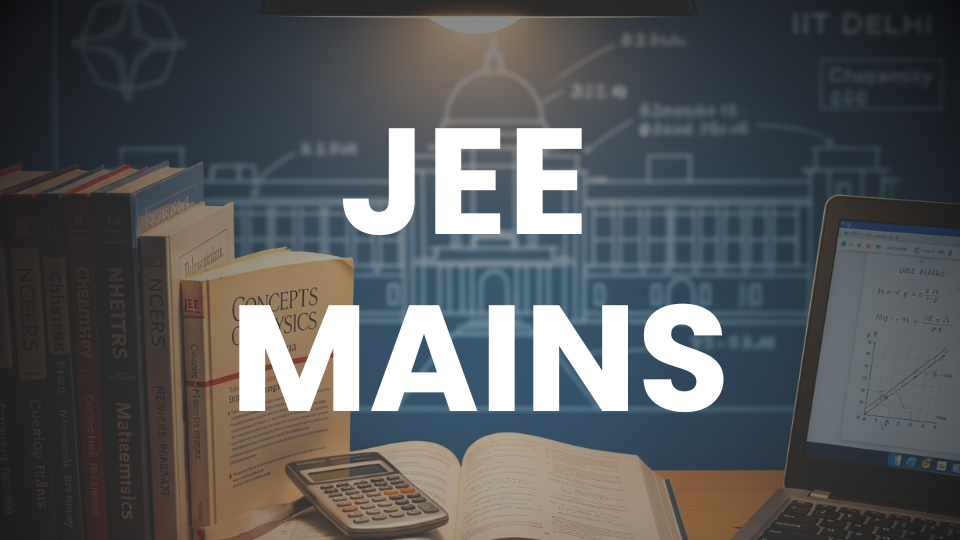
Table of Contents
What is JEE Mains
If you’re dreaming of studying at an NIT, IIIT, or even aiming for IITs — this is the exam that acts as a gate pass for you. JEE Main is your ticket to some of the most respected engineering institutes in the country.

Crack JEE Main and you don’t just unlock NITs and IIITs — you also become eligible to appear for JEE Advanced, the only way into IITs (Not considering their BS, M.Tech, P.hD courses). Plus, many private universities also accept JEE Main scores.

Because it’s not just about a college seat — it’s about setting the path for a career in tech, innovation, or even research. The competition is tough, but the rewards are worth it.
Past history of JEE Mains
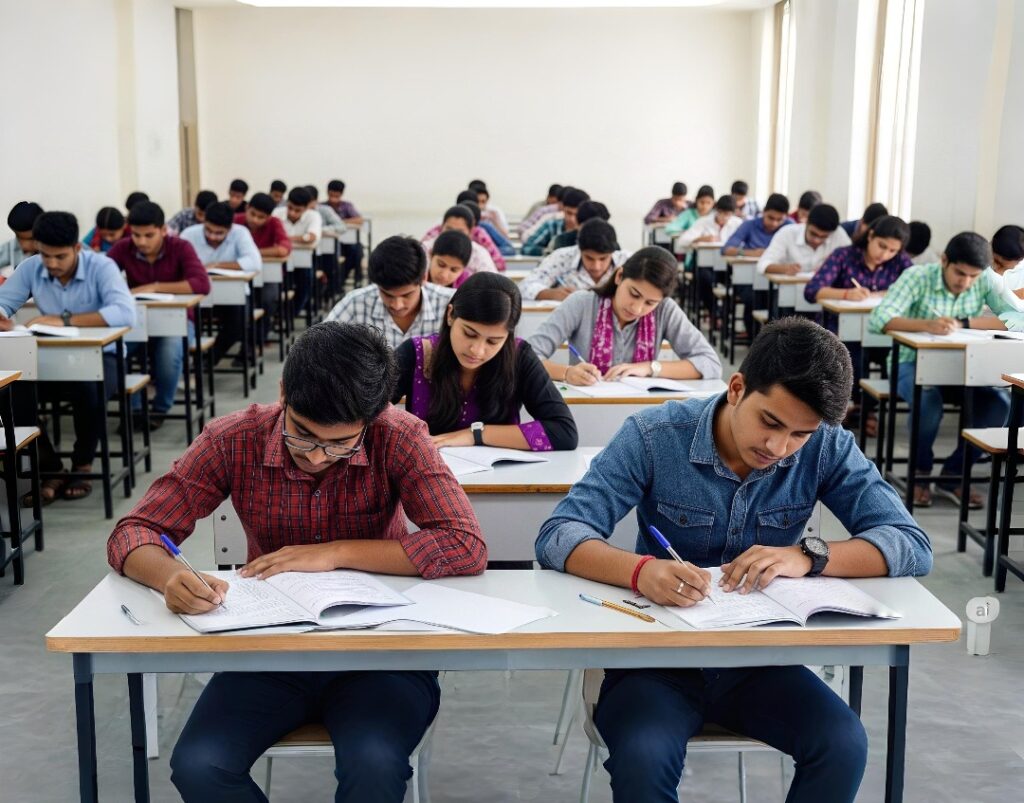
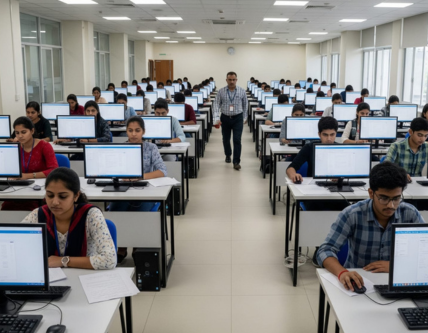

JEE Main was first conducted in 2013. It replaced the old AIEEE (All India Engineering Entrance Examination) as part of a new system to simplify engineering admissions across India.

Initially, CBSE was in charge. But since 2019, the National Testing Agency (NTA) handles everything — from making the paper to organizing the exam smoothly across the country.

Earlier, the exam had both offline (pen-paper) and online (computer-based) modes. But now, it’s fully online, which makes it faster, more secure, and tech-friendly. Students appear from thousands of centers all over India — even some international ones!
Recent changes and evolution

Since 2021, JEE Main is conducted twice a year ( Mostly Jan & April )
- Sometimes 4 times during COVID-19 period.
- You can appear in one or both sessions, and your best score is considered. This gives students a second shot without wasting a year!

No more paperwork! Everything — from filling the form to downloading the admit card — is done through the NTA website. Fast, simple, and eco-friendly.

The exam is now of 90 questions and only 75 to attempt (In total), with optional internal choices (e.g., attempt 5 out of 10 in numerical section) in each subject of paper.
Negative marking exists for MCQs, but not for numerical questions.

Still competitive, but more NCERT-focused than JEE Advanced. Questions test concepts, application, and smart problem-solving. Recent papers mix theory + real-world logic.

Upload with correct format (white background, clear face, no goggles 
Eligibility criteria
👶 Age Limit
No age limit! Yup, anyone who passed Class 12 in the last 3 years or is currently appearing can apply — regardless of age. (But colleges may have their own age rules!)
🎓 Qualifying Exam
You must have passed Class 12 or equivalent from a recognized board with Physics and Mathematics as compulsory subjects. The third subject can be Chemistry, Biology, Biotechnology, or Technical Vocational.
📊 Minimum Marks Required (Boards Eligibility)
👉 For IITs, NITs, IIITs & GFTIs, you need:
- 75% in Class 12 (or top 20 percentile of your board)
- For SC/ST, only 65% is required.
Exam pattern and format

You can attempt JEE Main for 3 consecutive years
Since it’s held twice a year, that means 6 total attempts

There are 2 main papers:
Paper 1 – for B.E./B.Tech (most common)
Paper 2A & 2B – for B.Arch & B.Planning (optional, only for those streams)

| Section | Subject | Questions | Marks |
| Section A | Physics | 20 MCQs + 10 NAT (5 to attempt) | 100 |
| Section B | Chemistry | 20 MCQs + 10 NAT (5 to attempt) | 100 |
| Section C | Mathematics | 20 MCQs + 10 NAT (5 to attempt) | 100 |
| Total | 75 Questions (25 per subject) | 300 | |
⌛ Duration: 3 hours
🖥 Mode: Computer-Based Test (CBT)
❌ Negative Marking:
MCQs: -1 for wrong answers
NATs (Numerical): No negative marking
📊 Difficulty Level:
- Easier than JEE Advanced.
- NCERT based organic and inorganic chemistry.
- For Maths, Physics, Physical Chemistry you need more practice from other sources
Syllabus and chapter weightage
📌 Subjects for JEE Main Paper 1 (B.E./B.Tech):
Physics
Chemistry
Mathematics
🧲 Physics
🧠 Concept-based + formula-driven
High-weightage chapters:
- Mechanics (especially Laws of Motion, Rotational Motion)
- Current Electricity & Magnetism
- Electrostatics
- Modern Physics
- Thermodynamics
- Waves & Oscillations
🧪 Chemistry
💥 Memory + logic combo (Physical + Organic + Inorganic)
Important chapters:
- Mole Concept & Stoichiometry
- Chemical Bonding
- Thermodynamics
- Coordination Compounds
- Organic Reaction Mechanism
- p-block & d-block elements
- Biomolecules & Environmental Chemistry (often ignored!)
📐 Mathematics
🧠 Calculation-heavy, time-consuming
Scoring chapters:
- Calculus (Definite Integration, Differential Equations)
- Coordinate Geometry
- Vectors & 3D
- Complex Numbers
- Probability & Statistics
- Matrices & Determinants
- Trigonometry (Basics & identities)
- There’s no English or Logical Reasoning in Paper 1. Those are only part of Paper 2 (B.Arch/B.Planning).
🏫 Popular Colleges Accepting JEE Main
JEE Main isn’t just an exam — it’s your golden entry pass to a wide range of engineering colleges across India. Here’s where your score can take you:

There are 31 NITs across India — known for solid academics, strong alumni networks, and government funding.


These are focused on IT, CS, and electronics. Great for those targeting software & tech careers.


These are state-run or centrally funded colleges that also admit through JEE Main.


Many reputed private universities consider JEE Main scores for admission (sometimes alongside their own exams).

Amrita Vishwa Vidyapeetham
Shiv Nadar University
UPES Dehradun
NIIT University.

IITs do NOT accept JEE Main scores. You need to clear JEE Advanced for them.
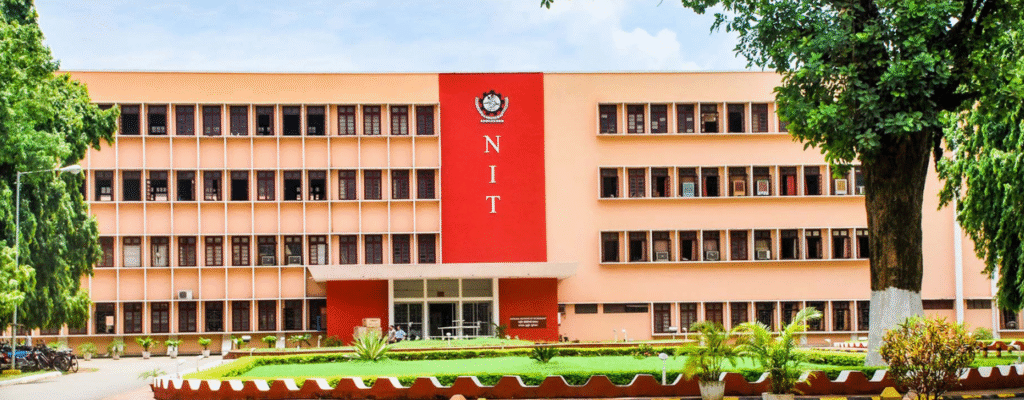

📈Previous Year Trends (Cutoff & Competition Level)

Every year, over 9–10 lakh students appear for JEE Main. Out of these, only around 2.5 lakh qualify for JEE Advanced. And even fewer make it to top NITs or IIITs.

| Year | Qualifying Cutoff (General) |
| 2025 | 93.1 percentile |
| 2024 | 93.2 percentile |
| 2023 | 90.7 percentile |
| 2022 | 88.4 percentile |
💡 SC/ST cutoffs are usually lower.
🎯 What marks should you aim for?
| Target | Safe Marks (out of 300) |
| NIT (top branches) | 180–220+ |
| IIIT (CS branches) | 170–210 |
| GFTIs / Mid NITs | 130–160 |
🔍 Remember: Percentile is based on relative performance, not raw score. So aim higher to be safe!
🧠 Difficulty level has been Balanced in recent years
Mostly NCERT-focused, with some tricky application-based questions.
Official Links
🌐 Official JEE Main Website: 👉 https://jeemain.nta.nic.in
📝 Registration Link (When Active): 👉 https://jeemain.nta.nic.in/ (Same site, link appears on homepage during registration window)
📅 NTA Official Website (for announcements): 👉 https://nta.ac.in
📂 Previous Year Question Papers (PYQs) + Answer Keys: 👉 https://jeemain.nta.nic.in/previous-year-question-papers/
Kaunsa Career Tips:-
🧠 1. Start with NCERT – Always!
Don’t jump to big books too soon. NCERT is the foundation for JEE Main – especially in Chemistry.
⏳ 2. Focus > Hours
Studying 10 hours a day means nothing if you’re not focused. Use the Pomodoro method or fixed-time blocks to stay consistent and fresh.
📊 3. Mock Tests = Gamechangers
Give 1 mock test/week in the beginning, then 3–4/week as the exam approaches. Analyze every test:
What went wrong?
Which subject is pulling you down?
Were silly mistakes avoidable?
📌 4. PYQs are gold
Practice the last 10 years of JEE Main PYQs. You’ll see patterns in question types and topic focus. They’re better than any random coaching module.
🚩 5. Don’t ignore these!
Numerical-type questions (NATs): no negative marking = free scoring
Easy chapters with high weightage: like Environmental Chemistry, Statistics, Semiconductors
Mental health & rest – burnout won’t help you crack anything!
📝 Final Words – From Team Kaunsa Career
At Kaunsa Career, we believe JEE Main is just one path — not the only one.
Yes, it’s a big exam. Yes, it opens amazing doors.
But your worth isn’t defined by one score — it’s defined by your effort, clarity, and smart choices.
👉 Whether you crack NITs or not…
👉 Whether you go for CSE or not…
👉 Whether your first attempt works out or not…
Your journey is still valid.
There are 100+ exams, 50+ streams, 1000+ careers — and one YOU.
Keep exploring. Keep improving. Keep believing.
We’re here to help — from first doubt to final seat.
📌 #SmartCareerStartsHere
🧠 Still figuring things out?
We’ve got you. From college comparisons to career paths — everything is simplified, honest, and student-first.
🚀 Kaunsa Career – For every student who wants direction, not pressure.

Related Posts
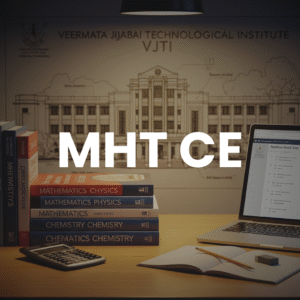
MHT CE
MHT CE 2026 — Syllabus, Exam Pattern, Eligibility, Cutoff & Complete Preparation Guide Complete Guide For MHT CE Youtube Instagram

COMEDK
COMEDK 2026 — Syllabus, Exam Pattern, Eligibility, Cutoff & Complete Preparation Guide Complete Guide For MHT CE Youtube Instagram Envelope

WBJEE
WBJEE 2026 – Syllabus, Exam Pattern, Eligibility, Cutoff, Colleges & Preparation Guide Complete Guide For WBJEE Youtube Instagram Envelope Table

MET
Manipal Entrance Test (MET) 2026 — Syllabus, Exam Pattern, Eligibility, Cutoff & Complete Preparation Guide Complete Guide For MET Youtube
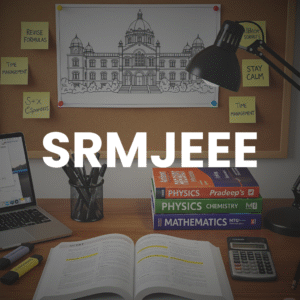
SRMJEEE
SRMJEEE 2026 — Syllabus, Exam Pattern, Eligibility, Cutoff & Complete Preparation Guide Complete Guide For SRMJEEE Youtube Instagram Envelope Table

VITEEE
VITEEE 2026 — Syllabus, Exam Pattern, Eligibility, Cutoff & Complete Preparation Guide Complete Guide For VITEEE Youtube Instagram Envelope Table
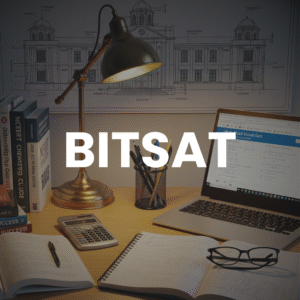
BITSAT
BITSAT 2026 — Syllabus, Exam Pattern, Eligibility, Cutoff & Complete Preparation Guide Complete Guide For BITSAT Youtube Instagram Envelope Table
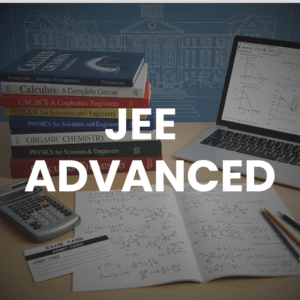
JEE ADVANCED
JEE Advanced 2026 Syllabus, Exam Pattern, Eligibility, Cutoff, Colleges & Full Preparation Guide by Kaunsa Career Complete Guide For JEE
Ask your career question — our team will guide you in 24 hours.
Subscribe to Newsletter
Phone No. – +91 9316272269

